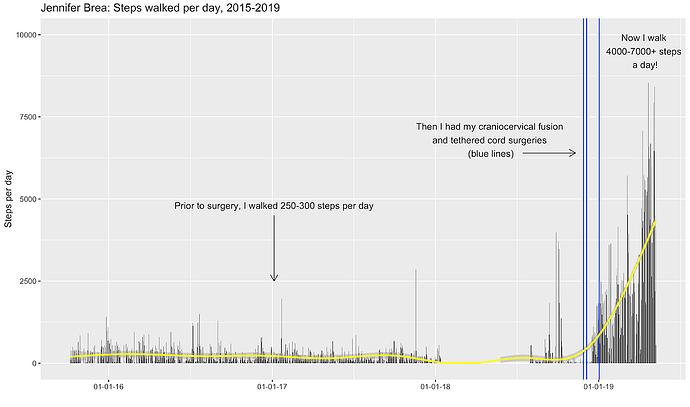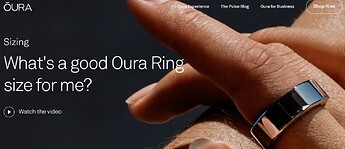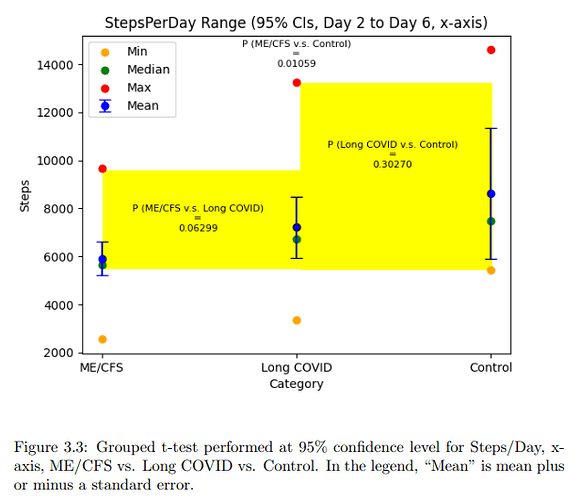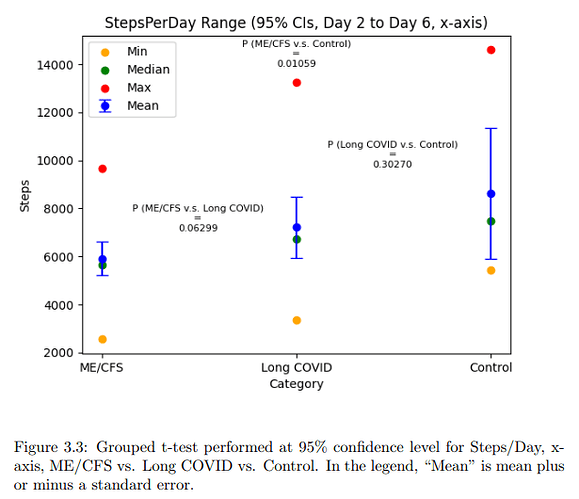Here are some of the (abnormal) things that they can measure:
- Heart rate
- ECG
- Steps taken per day
- Sleep patterns
- Blood sugar*
Heart Rate and ECG
You can measure your heart rate for free, as detailed in this post. If you know that you have an issue, wearable devices can let you track your heart rate throughout the day- it’s not limited to when you take your pulse.
If you have an irregular heartbeat, wearables are useful but not for tracking your heart rate throughout the data. Because the devices are designed for fitness enthusiasts, they may throw out data if there are irregular heartbeats in them. So that feature may not actually work. A professional Holter device is designed to track irregular heartbeats throughout the day - you should go through a cardiologist for that.
However, for people with an irregular heartbeat, the ECG feature is very useful. So it’s worth getting a wearable even if the other feature doesn’t work.
Steps taken per day
This is a proxy for the level of fatigue that you experience. It may or may not be helpful in tracking treatment progress.
The ME/CFS patient Jennifer Brea posted this example on her blog… she was walking less than 1000 steps on most days.
You can learn more about her recovery (here) and setback (here).
Sleep patterns
The wearables will also keep track of when you are “asleep”. They may not be able to tell the difference between you lying still and you being asleep. However, it’s otherwise a decent way of measuring your sleep. If you are sleeping at odd hours or waking up repeatedly in the middle of the night, this can provide some objective evidence of your disrupted sleeping patterns.
Blood sugar
Continuous Glucose Monitors (CGMs) can measure your blood sugar throughout the day. However, they are slightly invasive and are mainly used in patients who have diabetes. So I’ll skip over the details of this other than to point out that they exist.
Devices you can buy
The general categories are:
- Fitness trackers like the Fitbit Charge, Garmin Vívofit / Vívosmart, etc. These are cheaper because they don’t have fancy smartwatch features. Many are less than $200.
- Smartwatches, which are like fitness trackers with additional features that are unrelated to chronic illness.
- Oura ring, which is literally a ring that you wear. It’s a fitness tracker but smaller. No ECG feature.
- Portable ECG device like the KardiaMobile EKG Monitor, which only does EKG. Doesn’t track sleep or steps taken.
- ECG device that is strapped to your body. Some of these can measure your ECG for 5-15 minutes hands-free, while Fourth Frontier claims to measure a continuous ECG up to 24 hours. People on Reddit are suggesting that the Frontier data is no good. There are also professional devices that are vaguely in the same price range.
- Pulse oximeter - many of these measure heart rate on top of blood oxygen levels. Interesting if you have POTS as you can quickly see your heart rate shoot up.
Sales, discounts
All of the consumer devices are usually much cheaper during Black Friday, holiday sales, etc. etc.
The bottom line
First figure out if you have any of the 5 issues mentioned at the beginning of this post.
- Measure your pulse to see if you have problems with heart rate or irregular heartbeat.
- Fatigue and sleep: you’ve probably already noticed it by now…
- If you have symptoms of diabetes, ask your doctor for testing. There is also the old school method of tasting your urine to see if it’s sweet…

If you have any of those problems, wearables can help you measure more frequently and/or conveniently. They can help track the progression of your health over time.



